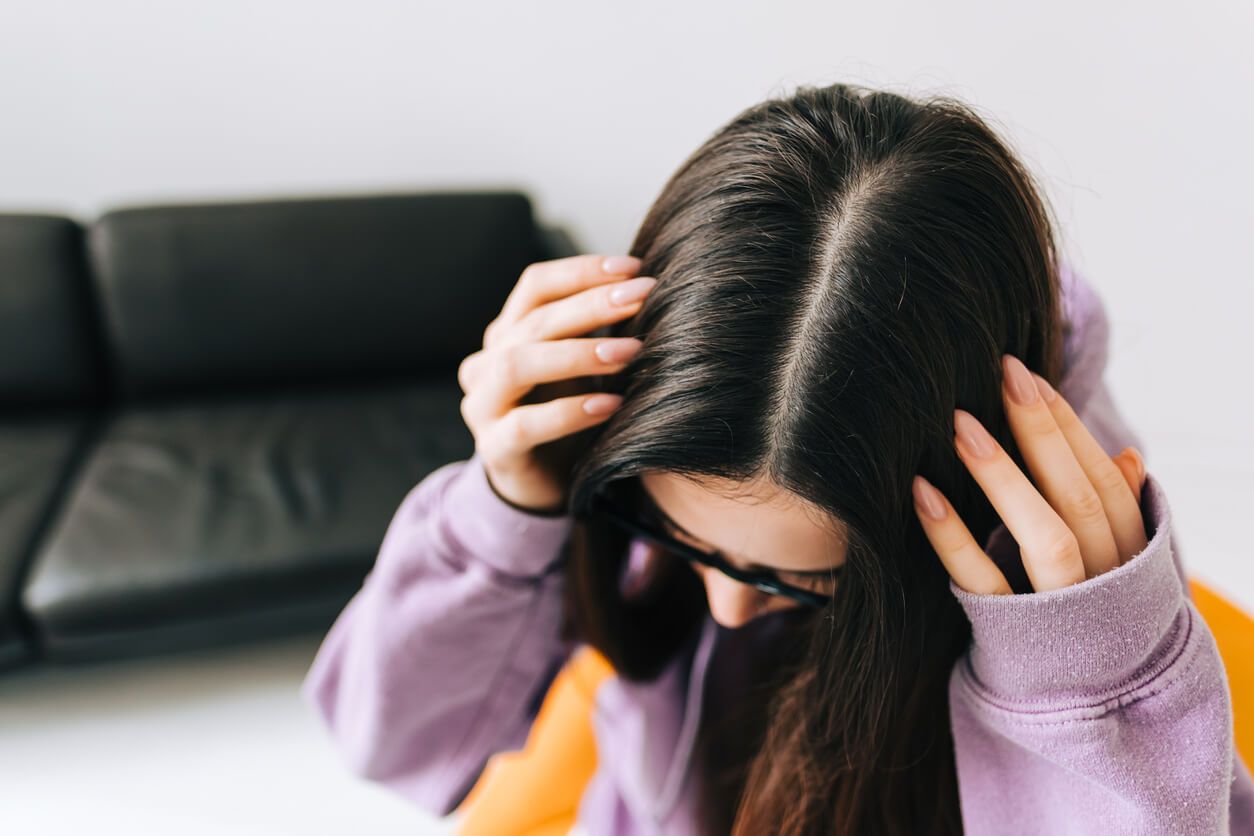
- Home
- Trend
- Weight Loss Strategies
- Acne Tips
- Hair Health Information
- Blemish Removal Tips
- Acne Scar Removal Tips
- Muscle Building Techniques
- Intimate Care Tips
- Postpartum Intimate Care
- Eye Bags Wiki
- Tips for Face Slimming
- Secret of Permanent Hair Removal
- Breast Enlargement Tips
- Cure to Snoring
- Marionette Lines
- Skin-Tightening Secrets
Oral hair growth medication is one of the most common modern treatments for androgenetic alopecia. These medications primarily work by inhibiting the activity of 5-alpha reductase and dihydrotestosterone (DHT) in the body, which helps prevent hair follicle miniaturization and closure. By slowing hair loss and encouraging new growth, these treatments can help increase overall hair volume. However, there are many different types of oral hair growth medications, and since most function as androgen inhibitors, choosing the wrong one can lead to hormonal imbalances. That’s why careful selection is essential!
Let’s break down the five main types of oral hair growth medications, including how to tell the difference between Propecia, Proscar, Loniten, Avodart, and more. We’ve also included proper usage guidelines—and a surprise at the end for those tackling hair loss!
The 4 Main Causes of Hair Loss: Know Your Enemy to Defeat It

• Androgenetic Alopecia (Genetics, DHT):
The most common type of hair loss, it’s linked to genetics and elevated testosterone. DHT, a byproduct of testosterone, attacks hair follicles, causing them to shrink. This results in thinner, shorter hair that eventually stops growing.
• Telogen Effluvium (Stress, Illness, Medication):
Stress, illness, or certain medications can disrupt the hair growth cycle, pushing large numbers of follicles into the resting (telogen) phase, leading to excessive shedding or even permanent loss.
• Alopecia Areata (Immune System):
An autoimmune condition where the immune system mistakenly attacks hair follicles, causing patchy hair loss.
• Postpartum Hair Loss (Hormonal Changes):
After childbirth, rapid hormonal fluctuations—especially elevated DHT—can shrink follicles, leading to temporary hair loss.
Other potential causes include nutrient deficiencies (e.g., vitamins and minerals), scalp conditions (seborrheic dermatitis, folliculitis), and unhealthy lifestyle habits (smoking, alcohol, sleep deprivation).
Common Symptoms of Hair Loss: 4 Early Warning Signs to Watch Out For

Hair thinning usually happens gradually, so it’s important to act early—especially if you have a family history of androgenetic alopecia.
• Thinning at the Crown:
A widening hair part or more visible scalp.
• Receding Hairline:
Hair loss at the temples, creating an “M-shaped” hairline.
• Diffuse Thinning:
Thinning that isn’t limited to the front or crown—can occur all over.
• Increased Shedding & Noticeable Volume Loss:
Sudden, excessive shedding is abnormal and a clear red flag.
免費體驗
F8 Hair Regrowth Treatment
1 Minute Self-Registration
Date should not be before minimal date
The 5 Main Types of Oral Hair Growth Medications: Detailed Overview to Prevent Follicle Miniaturization
1. Finasteride (Propecia / Proscar)
• Mechanism: Inhibits 5-alpha reductase to lower DHT levels and protect follicles.
• Effectiveness: Reduces hair loss and promotes new growth.
• Side Effects: May include reduced libido, erectile dysfunction, dizziness.
• Precautions: Not for use by women who are pregnant or trying to conceive.
• Best For: Men only.
• Recommended Brands: Propecia (also known as 保康絲 in Hong Kong) or Proscar.
2. Dutasteride (Avodart / New Hair Growth Formulations)
• Mechanism: Blocks both type I and type II 5-alpha reductase—more potent than Finasteride.
• Effectiveness: Comparable to or stronger than Finasteride.
• Side Effects: Similar to Finasteride, with slightly higher risk.
• Precautions: Not for use by women who are pregnant or trying to conceive.
• Best For: Men only.
• Recommended Brand: Avodart – while commonly used for prostate enlargement in Hong Kong, some doctors also prescribe it for hair loss after careful assessment.
3. Minoxidil (Loniten)
• Mechanism: Dilates blood vessels and improves scalp circulation to stimulate hair follicles.
• Unique Feature: One of the few medications available in both oral and topical forms (topical is more commonly used).
• Effectiveness: Encourages hair regrowth, though results vary.
• Side Effects: Possible low blood pressure, rapid heartbeat, ankle swelling.
• Usage: Oral or topical—only under medical supervision.
• Recommended Brand: Loniten.
4. Saw Palmetto (Natural Supplement)
• Mechanism: May inhibit 5-alpha reductase and reduce DHT (though not as powerful as prescription drugs).
• Effectiveness: Might help reduce hair loss, but unlikely to produce rapid results.
• Type: Herbal supplement, often used as a gentler alternative.
5. Other Oral Supplements: Biotin, Zinc, etc.
• These support healthy hair growth and are often used alongside prescription treatments.
How to Choose the Right Oral Hair Growth Medication: 4 Expert Tips + Important Notes
Choosing the right medication is a big decision—follow these steps:
1. Consult a Doctor First!
A medical professional will assess your type and severity of hair loss, health history, and overall condition before recommending the most suitable medication.
2. Disclose Full Medical History:
This includes past medications, allergies, and current health status.
3. Understand the Risks and Side Effects:
Being mentally prepared is key to a successful treatment journey.
4. Expect a Comprehensive Exam:
Includes visual inspection, scalp analysis, and sometimes follicle assessments.
How to Properly Use Oral Hair Growth Medication: Guidelines and Safety Tips
• Always follow your doctor’s instructions—dosage, timing, and frequency.
• Be aware of initial shedding (shedding phase), which indicates the medication is working.
• Report side effects immediately. Do not stop medication abruptly without consulting your doctor.
• Maintain a healthy diet and lifestyle to support treatment.
• Go for regular follow-ups to monitor progress and adjust treatment if needed.
免費體驗
F8 Hair Regrowth Treatment
1 Minute Self-Registration
Date should not be before minimal date
Debunking 5 Common Myths About Oral Hair Growth Medications
• Do they affect sexual function?
Some may experience side effects, but not everyone.
• Will hair loss return after stopping medication?
Yes, the benefits will fade once the drug is discontinued.
• Will taking more make it work faster?
Absolutely not—overdosing can cause serious harm.
• How long before I see results?
Typically 3 to 6 months of consistent use.
• Are they safe for women?
Some, like Finasteride, are not suitable for women.
What Other Treatments Can Help Besides Oral Medications?
Low-Level Laser Therapy (LLLT)
Improves blood circulation and stimulates follicles.
PRP (Platelet-Rich Plasma) Injections
Supports follicle repair and growth.
Hair Transplant Surgery
Ideal for severe baldness in localized areas.
Lifestyle Changes
Eat well, sleep regularly, manage stress.
Concerned About Side Effects? Try Perfect Medical’s F8 Hair Regrowth Treatment – 100% Safe, Non-Invasive & Painless!
Worried about the side effects of Propecia, Proscar, or Loniten? Try the Perfect Medical F8 Hair Regrowth Treatment—a completely safe, painless, and non-invasive solution. Just one session can show visible improvement in androgenetic alopecia.
Unlike traditional medications or hair transplant surgeries, the F8 Treatment uses low-energy soft laser to deliver medical technology deep into the hair follicles, revitalizing them and accelerating new hair growth. This treatment doesn’t damage the scalp or existing hair, making it perfect for:
• Male pattern baldness
• Diffuse thinning
• Receding hairlines
• Telogen effluvium
• Seborrheic hair loss
• Postpartum hair loss
• Stress-induced hair loss
Register now for a free consultation including a professional scalp analysis + F8 treatment trial!
Register Now: Perfect Medical F8 Hair Regrowth Treatment免費體驗
F8 Hair Regrowth Treatment
1 Minute Self-Registration
Date should not be before minimal date
FAQ

What causes androgenetic alopecia?
It’s related to high DHT levels and the activity of type I & II 5-alpha reductase, which shorten the hair growth cycle and harm follicles.
What are the side effects of oral hair loss medication?
Discontinuing treatment may lead to hormonal imbalances, so it's essential to follow a doctor’s guidance.
Who is a good candidate for oral hair growth drugs?
Anyone experiencing hair loss—not just those with male pattern baldness—can benefit. These drugs prevent follicle shrinkage and slow hair loss.
Is Propecia effective?
It usually takes at least 3 months, but most users see clear results within a year.
What are alternatives to Propecia?
Proscar, Avodart, Dutasteride-based meds, and Loniten are also widely used oral hair loss treatments.








